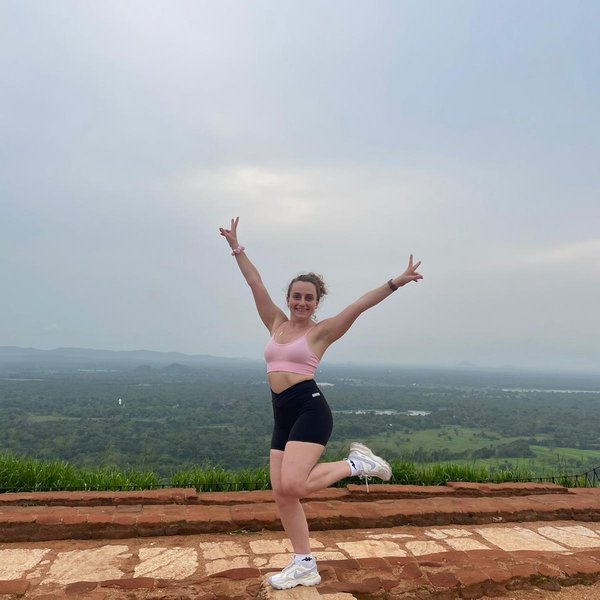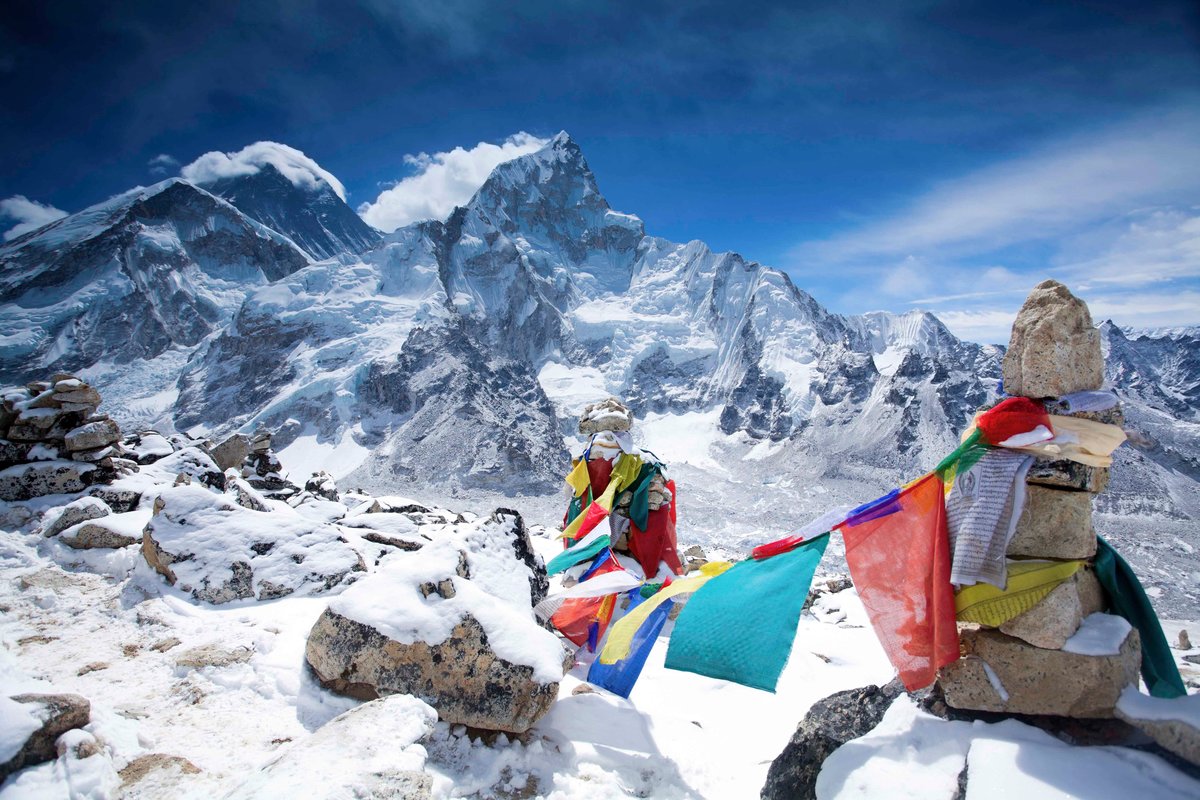Barts and the London School of Medicine and Dentistry 2025
%202.jpeg) I’d always been fascinated by the idea of learning medicine in a completely different cultural and clinical setting. As a final-year medical student in the UK, I was keen to see how healthcare operates in a low-resource environment, and I wanted to experience medical cases that aren’t as common back home. Nepal appealed to me not just for its clinical differences, but also for its rich culture, history, and stunning landscapes. I saw it as a chance to grow both professionally and personally.
I’d always been fascinated by the idea of learning medicine in a completely different cultural and clinical setting. As a final-year medical student in the UK, I was keen to see how healthcare operates in a low-resource environment, and I wanted to experience medical cases that aren’t as common back home. Nepal appealed to me not just for its clinical differences, but also for its rich culture, history, and stunning landscapes. I saw it as a chance to grow both professionally and personally.
The hospital was a bustling and vibrant environment, filled with patients, relatives, and dedicated healthcare professionals. While the infrastructure was limited compared to what I was used to in the UK, there was a clear sense of pride and resilience among the staff. I noticed immediately how resourceful the clinicians were, making the most of the tools available to them. The wards were often full and fast-paced, but I was welcomed with kindness and encouraged to participate, which helped me feel integrated right from the start.
I rotated through General Medicine, Orthopaedics, and Dermatology. Each speciality gave me unique learning opportunities. In General Medicine, I saw cases like organophosphate poisoning and rheumatic heart disease, which are rare in the UK but more common in Nepal due to environmental and socioeconomic factors. In Dermatology, I was introduced to iontophoresis – a treatment method I hadn’t encountered before – and I saw a wide range of skin conditions, including leprosy and fungal infections.
Orthopaedics was particularly hands-on. I assisted in multiple reconstructive knee surgeries and learned how trauma care is managed in a setting with limited imaging and surgical equipment.
Many of the injuries I saw – severe fractures, crush injuries, and spinal trauma – stemmed from poor road conditions, a lack of proper safety equipment for manual labourers, and general infrastructure challenges.
Throughout the placement, I also worked on improving my Nepali language skills, learning key phrases to help communicate with patients more effectively. This not only improved patient interactions but also deepened my cultural sensitivity and confidence in cross-language communication.
%203.jpeg) One of the most memorable cases was a young man who had ingested organophosphates – a type of pesticide – in a suicide attempt. The management of this emergency was incredibly intense and showcased how quickly the hospital team needed to act despite limited resources. It was striking how common this type of poisoning was in Nepal, and it led to deeper reflection on the mental health challenges and access to toxic substances in different societies.
One of the most memorable cases was a young man who had ingested organophosphates – a type of pesticide – in a suicide attempt. The management of this emergency was incredibly intense and showcased how quickly the hospital team needed to act despite limited resources. It was striking how common this type of poisoning was in Nepal, and it led to deeper reflection on the mental health challenges and access to toxic substances in different societies.
I also remember an elderly patient with a longstanding fungal skin infection that had progressed significantly due to delayed access to care. In the UK, early intervention and topical treatment would likely have prevented such escalation, but here, socioeconomic and geographic factors delayed treatment. Seeing this highlighted the importance of global health equity and public health infrastructure.
The differences were stark but illuminating. In Nepal, patients and families often bear the financial burden of care, having to purchase everything from medications to dressings and even surgical instruments. This could delay treatment or limit what was available to clinicians.
There were also infrastructural limitations – many wards had minimal privacy, documentation was paper-based, and access to advanced diagnostics was often restricted or unaffordable. Yet despite these obstacles, the clinicians displayed incredible adaptability and clinical judgement. It reminded me that compassion, communication, and experience can often bridge the gap where technology and infrastructure fall short.
In contrast, the NHS provides care free at the point of delivery, and we often take for granted the consistent access to medications, investigations, and specialist support. My experience in Nepal gave me a new appreciation for the structure and equity of the UK system, while also reinforcing how much can be achieved with fewer resources if the will and skill are there.
%206.jpeg) Evenings were usually spent relaxing and chatting on the rooftop of the Work the World house, enjoying the mountain views and getting to know each other. It became a little family.
Evenings were usually spent relaxing and chatting on the rooftop of the Work the World house, enjoying the mountain views and getting to know each other. It became a little family.
We’d sometimes play games, watch movies, or head out to a nearby café. Weekends were for adventure. One of the highlights was a four-day trek in Pokhara, where we reached the summit of Poon Hill just after sunrise – one of the most beautiful views I’ve ever seen.
We also visited famous sites like the Monkey Temple and Boudha Stupa in Kathmandu, and spent a weekend in Chitwan exploring the jungle, watching traditional dances, and spotting wildlife like rhinos.
It wasn’t just sightseeing – these trips offered cultural immersion, helped us understand the context of the healthcare system, and bonded us as a group.
This experience has given me a perspective that I couldn’t have gained in the UK. Clinically, I encountered new conditions, developed surgical skills, and learned to adapt to a more hands-on, flexible approach to patient care. Culturally, I became more empathetic and appreciative of the diverse ways in which people live, seek care, and interpret illness.
%205.jpeg) Personally, the elective challenged me – I had to navigate unfamiliar environments, learn new phrases, and take initiative in settings where I wasn’t always certain what to expect. It’s made me a more confident, culturally aware, and adaptable future doctor.
Personally, the elective challenged me – I had to navigate unfamiliar environments, learn new phrases, and take initiative in settings where I wasn’t always certain what to expect. It’s made me a more confident, culturally aware, and adaptable future doctor.
To others who might be considering an overseas placement, I’d say do it. A Work the World placement is not just about ticking a box – it’s an experience that will shape your approach to medicine, give you lifelong memories, and open your eyes to how healthcare can and does function around the world. You’ll meet amazing people, both in the house and in the hospital, and come away with a new sense of purpose and perspective.
It’s the best decision I made during medical school, and I couldn’t recommend it more highly.




1.png)




